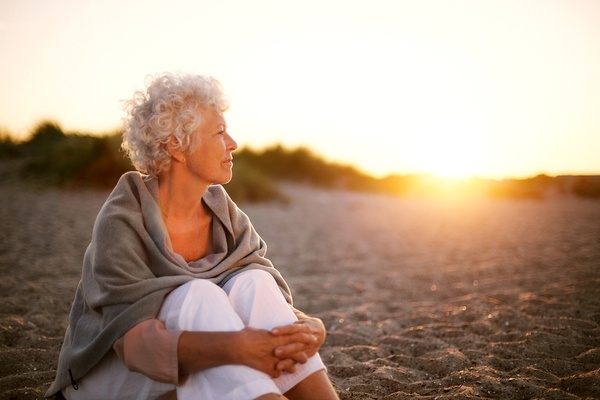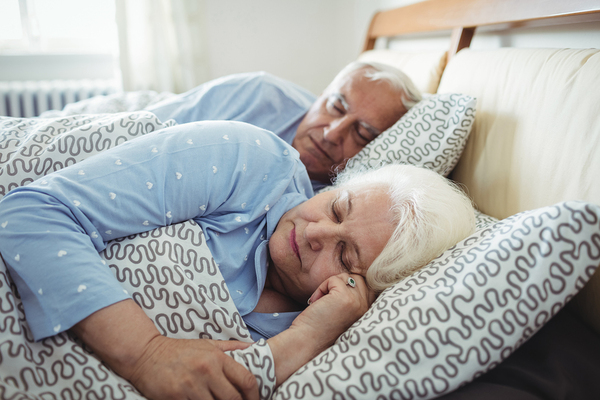 As many as 66 percent of patients with Alzheimer’s disease may experience a phenomenon known as Sundowning, AKA “sundown syndrome” or “nocturnal delirium,” according to Thomas Weiss, MD. Unfortunately, coping with this condition can pose unique challenges for caregivers. Educating yourself about Sundowning, however, can be an invaluable management technique.
As many as 66 percent of patients with Alzheimer’s disease may experience a phenomenon known as Sundowning, AKA “sundown syndrome” or “nocturnal delirium,” according to Thomas Weiss, MD. Unfortunately, coping with this condition can pose unique challenges for caregivers. Educating yourself about Sundowning, however, can be an invaluable management technique.
Here’s a closer look at what all senior caregivers should know about Sundowning, along with a particularly useful resource for caring for an aging loved one who suffers from sundown syndrome.
What is Sundowning?
According to the Mayo Clinic, “Sundowning isn't a disease, but a group of symptoms that occur at a specific time of the day that may affect people with dementia, such as Alzheimer's disease.”
Many caregivers notice the onset of challenging behaviors with the fading of the light in the afternoon and progressing into the evening. Others observe sleep changes and/or restlessness at night. Both of these are examples of sundowning. While scientists haven’t yet determined a single cause for these issues, they believe they’re related to changes in the brain caused by Alzheimer’s which impact the body’s internal clock.
In addition to physiologic risk factors, environmental risk factors also exist, including changes in the environment and the amount of daily light exposure, high noise levels, daytime activities, nighttime disruptions, medications, and/or the presence of other diseases. Little is known, however, regarding whether race or gender factor in.
What Are the Symptoms of Sundowning?
“Behaviors include confusion, anxiety, agitation, or aggressiveness with increased motor activity like pacing, wandering, resistance to redirection, and increased verbal activity like yelling.” Pacing, mood swings, and suspicion are also associated with sundown syndrome.
Unlike delirium, however, these symptoms worsen in the late afternoon and evening.
What Causes Sundowning?
More specifically, researchers theorize that sundowning occurs as a result of circadian dysregulation, which may be triggered by a number of factors, including inadequate exposure to daytime sunlight; low lighting and increased shadows exacerbating late-day confusion; end-of-day physical and mental exhaustion; reactions to nonverbal cues from exhausted and/or frustrated caregivers; disorientation caused by the inability to distinguish dreams from reality; and reduced need for sleep.

Other factors which might increase the likelihood of sundowning?
- Hunger or thirst
- Depression
- Pain
- Boredom
The Impact of Sundowning
Unfortunately, the impact of Sundowning isn’t just felt by the person experiencing it. Caring for someone with sundown syndrome can also interfere with caregiver sleep, health, and overall quality of life.
Educating yourself about the causes and symptoms of sundowning is just one part of the equation. As Molly Chambers, an elders-at-risk expert at Franklin County Home Care Corporation told Healthcare News,
“For a caregiver to understand what is happening is so important as well. For many people, caring for their spouse or parent is a 24-hour job, and knowing that this is a common syndrome can lessen some of their anxiety.”
Equally important? For more information on caring for a person with sundowning, including coping strategies, read our online guide to sundowning syndrome.
If you're looking for a comprehensive resource for family caregivers, check out our online Family Caregiver Guide.
mmLearn.org offers a large library of free videos for caregivers of older adults, covering topics pertaining to senior care. Whether you are a healthcare professional or a family caregiver, if you are caring for an older adult we know that you will find mmlearn.org an essential learning and guidance tool for all of your caregiver training needs. For more helpful content, access our complete database of free online videos for caregiver today.

